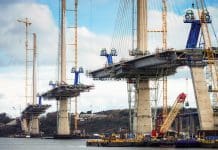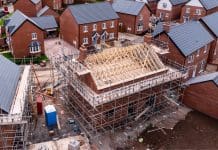Mace recently published its Market View report for Q3, which outlines a maintained forecast of 3.0% for London and 3.5% for the rest of the country for 2023
Mace has confirmed that no changes will be made to its tender price forecast for Q3 after positive and negative impacts balance out costs across the industry
One of the key factors impacting the forecast was the prolonged dip in material costs, combined with a drop in prices over the summer.
This has led to a significant downturn compared to this time last year. The decrease in costs has been fuelled by the reduced cost of steel and wood. However, other materials costs have continued to rise.
Output increased slightly in Q3, leading to a rise in maintenance and repair
The Market View report also outlines a small increase in construction output, which has risen from 0.3% in Q2, marking a 1.2% increase in the first six months of 2023. This increase has led to a rise in maintenance and repair work rather than new construction projects.
As the general election draws closer in the UK, along with the impact of the RAAC crisis and concern surrounding major projects such as HS2, the report highlights how uncertainty is set to continue in the construction industry in the quarters to come.
“The economy continued to struggle over the past quarter and is likely to persist into 2024. Against this backdrop, the Bank of England has tightened monetary policy further, causing significant challenges for construction’s largest sector, housing,” commented Andy Beard, global head of cost and commercial management at Mace.
“Inflation may be easing, but it is still far too high, and despite construction material prices now falling, the pressure caused by historical increases is still a major issue,” he continued.
The Market View report criticised Sunak’s government
The report also pointed out Rishi Sunak’s deliberation over the county’s net zero policy as another contributor to uncertainty in the sector. Mace labelled Sunak’s government as one that has shown “indifference to business uncertainty”.
Construction companies have seen no increase in subsidies, which Mace has argued are needed to upgrade domestic heat systems. They also argue that more needs to be done to improve insulation in order to reduce emissions and energy bills.
“Given the fiscal squeeze caused by higher interest rates and inflation, it was always likely that public spending would come under pressure. If Q3 sees another very low set of new order data, we may need to lower our tender price forecasts. An impending general election only adds to market unpredictability,” concluded Andy Beard.














